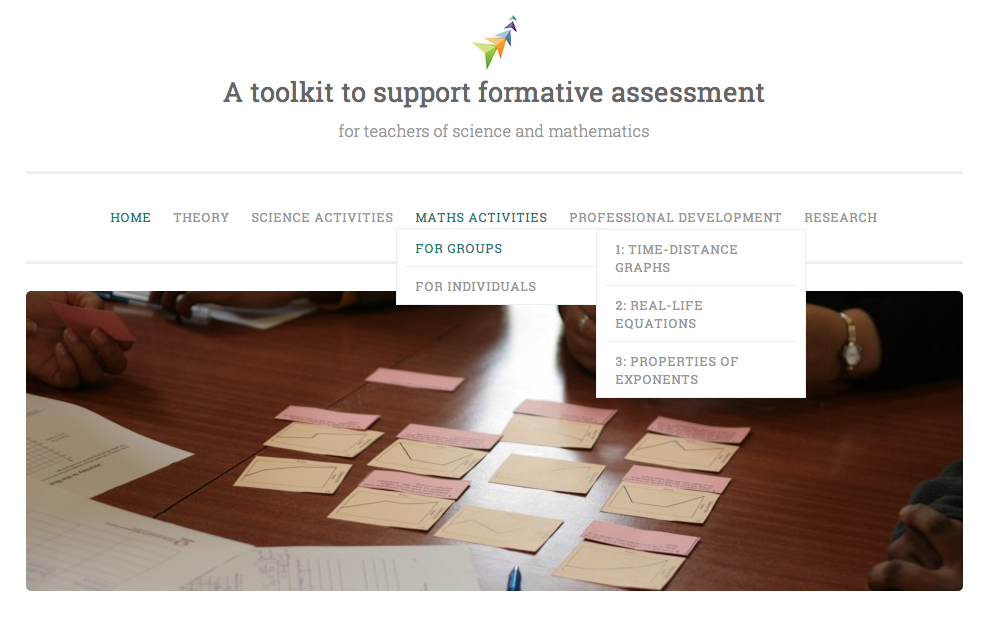On 6 September 2014, George Chirume attended the AMESA Western Cape Regional conference. One of the sessions he attended was about the FaSMEd research project. George indicated that he wanted to be involved in the project so on 18 November and Marie and Ingrid visited the Vredendal campus of the West Coast FET College.
George had told many of his colleagues about the project and there were a total of 7 lecturers at the meeting.
Marie began by giving some background about the project, explaining that it is a European project involving nine countries.
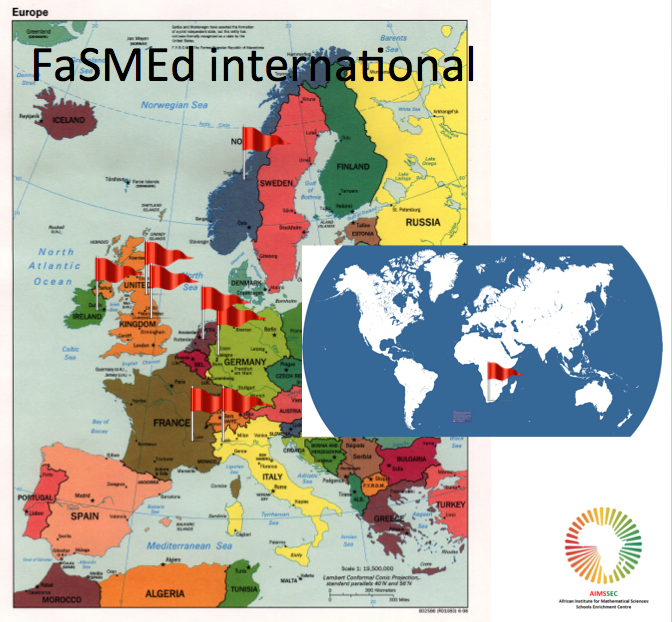
She explained that at the heart of the project is the development of toolkit to support science and mathematics teachers with using formative assessment in their classrooms. AIMSSEC’s participation in the project involves working with teachers and lecturers to develop a South African version of the international prototype toolkit.
Ingrid then facilitated a discussion about formative assessment to guage what the lecturers understanding of formative assessment was. Important points that were made include the fact that formative assessment is not only about gathering information about one’s students but also about what one does with this information. Lecturers shared different ways in which they collect information about what their students have learnt and the importance of engaging students during a lesson was highlighted.
Ingrid then showed the lecturers the current versions of the toolkit and explained what is in the different sections, pointing out in particular the mathematics activities section.
The lecturers were provided with a pack containing the three mathematics lessons currently on the toolkit (Time-distance Graphs, Real-life Equations and Properties of Exponents). They divided into three groups and worked through the card matching activity from the distance-time lesson.
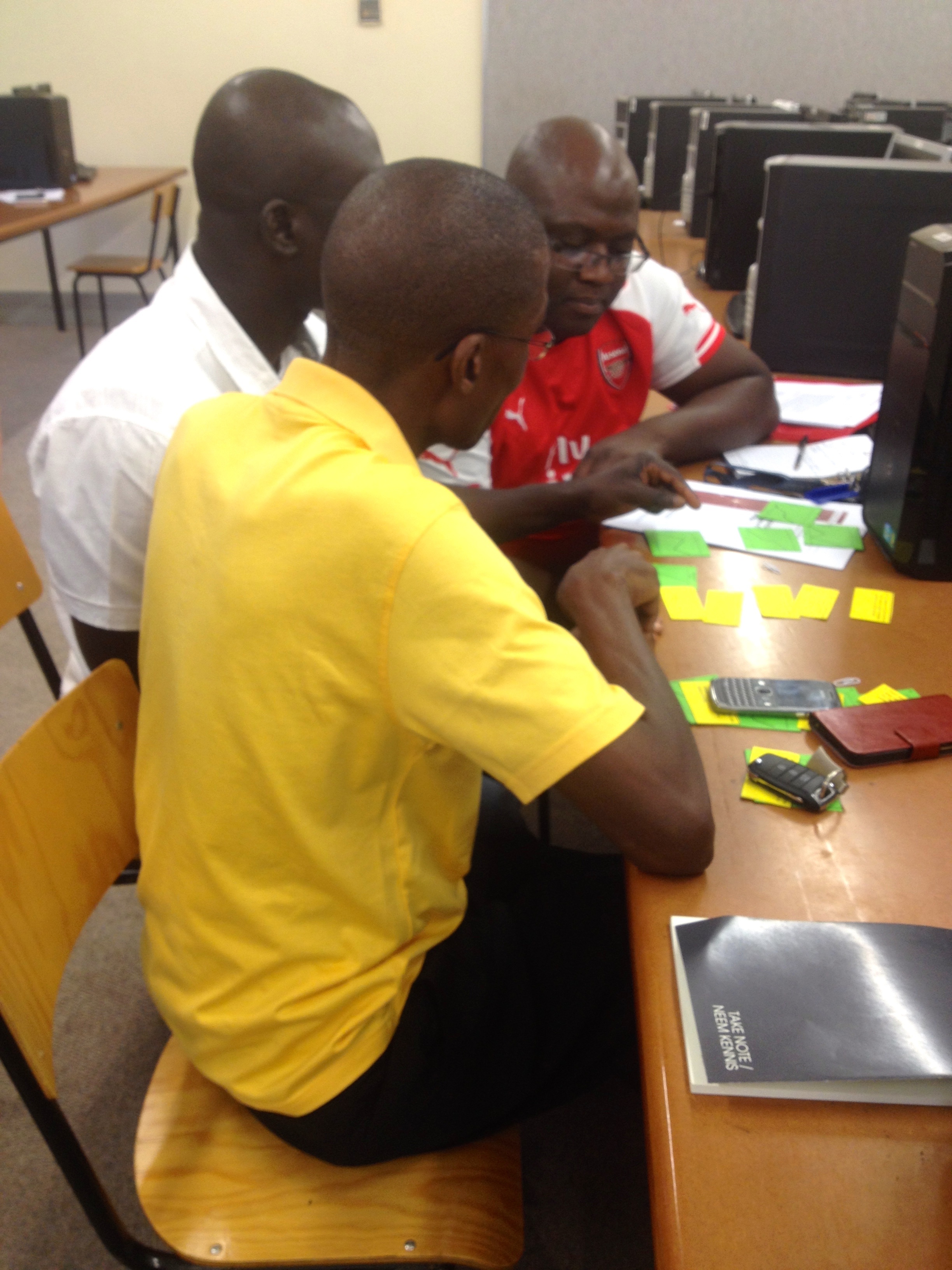
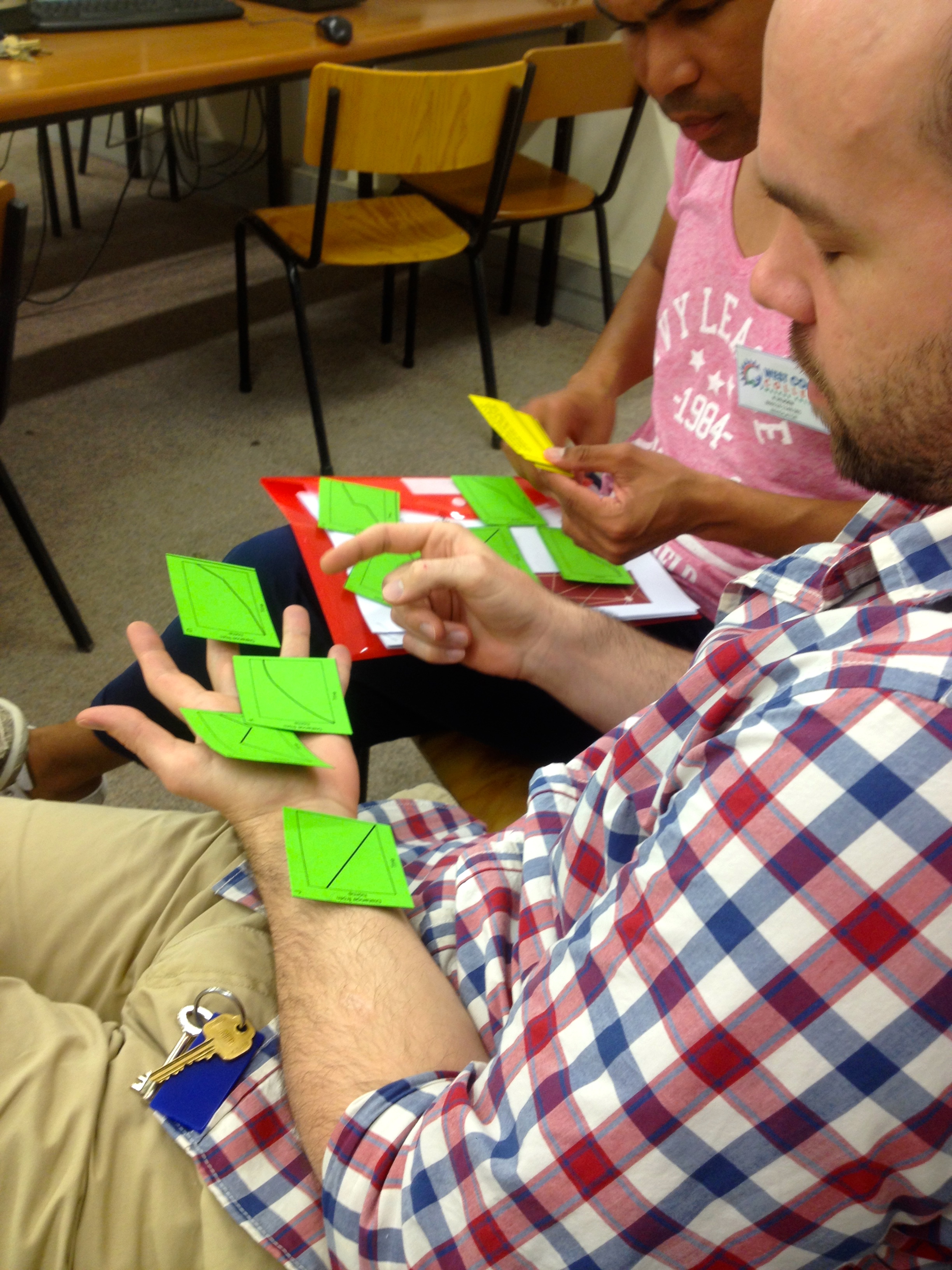
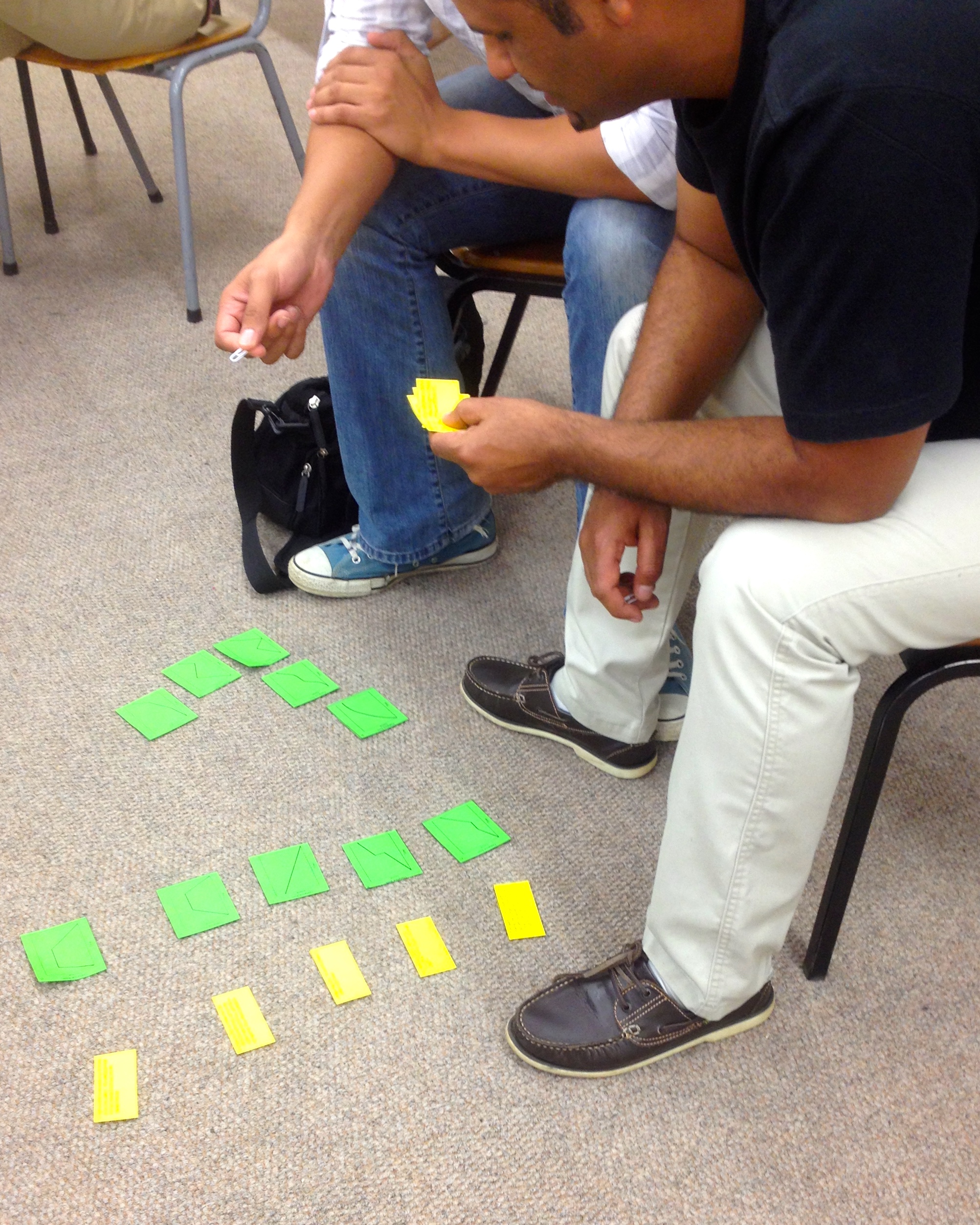
Three groups working on matching the cards using a variety of approaches
After the groups had matched their cards they compared their answers with other groups and a lively discussion ensued. Although the groups agreed on the majority of matchings there were a few pairs of cards that groups had matched differently. To decide on a final answer the groups were forced to study carefully the similarities and difference between the cards and to justify their decisions to the other groups. Finally consensus was reached regarding the matching of the first two sets of cards. The matching of the third set of cards was left for the lecturers to do in their own time.
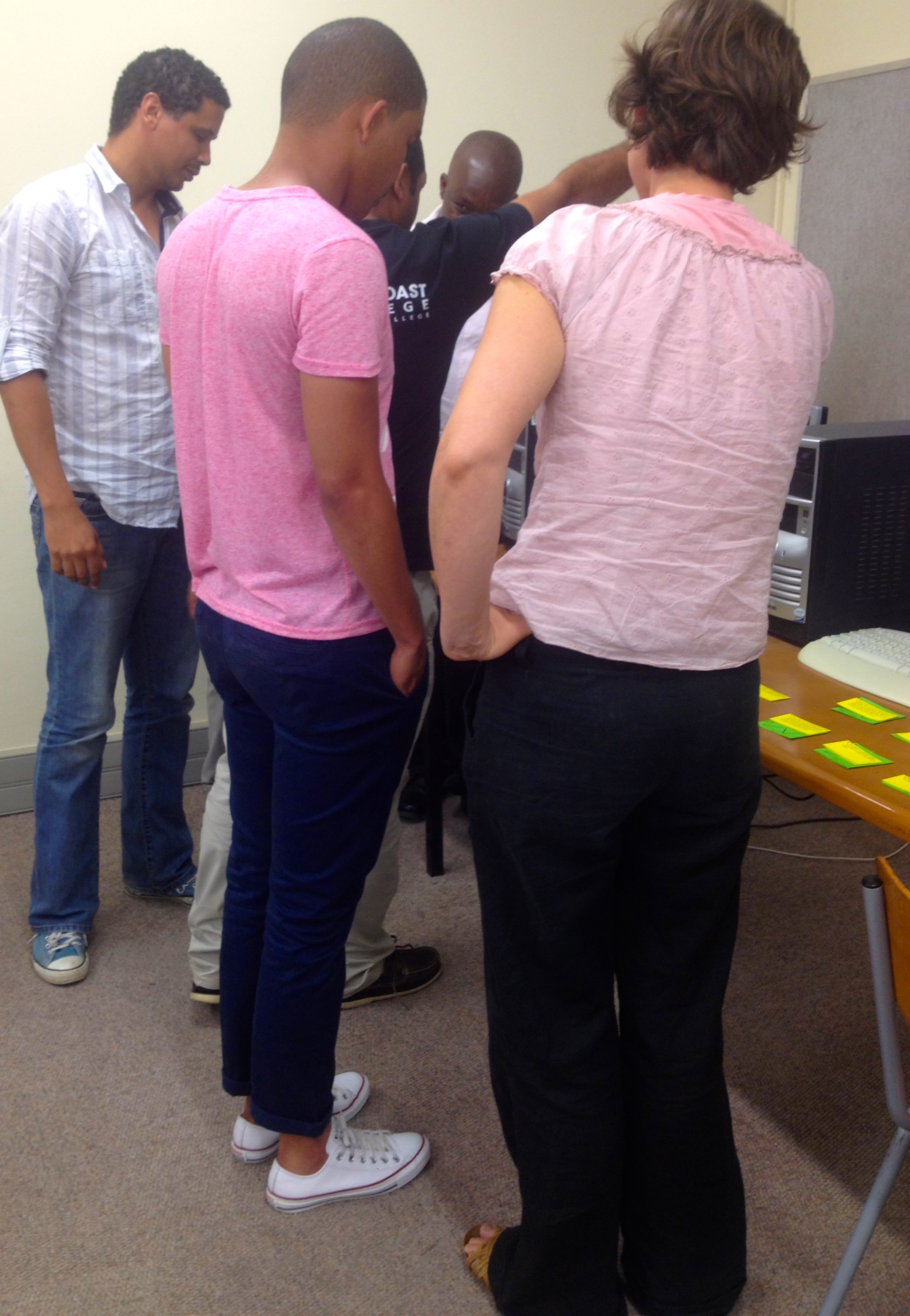
Groups comparing answers
The lecturers said that they enjoyed working on the activity as it forced them to engage with the content. Marie pointed out again that asking students to match the cards was only part of doing formative assessment as it provided the lecturer with information which then needs to be acted on – either by revising certain concepts or by moving onto the next topic if all students have demonstrated that they understand distance-time graphs.
Marie then explained what being involved in the project would entail and how the model would be adapted for the Vredendal lecturers due to Vredendal being very far from Cape Town. Marie also explained the different consent forms that were in the pack and talked about three different parties that would need to give consent – the campus manager, the lecturers and the students.
